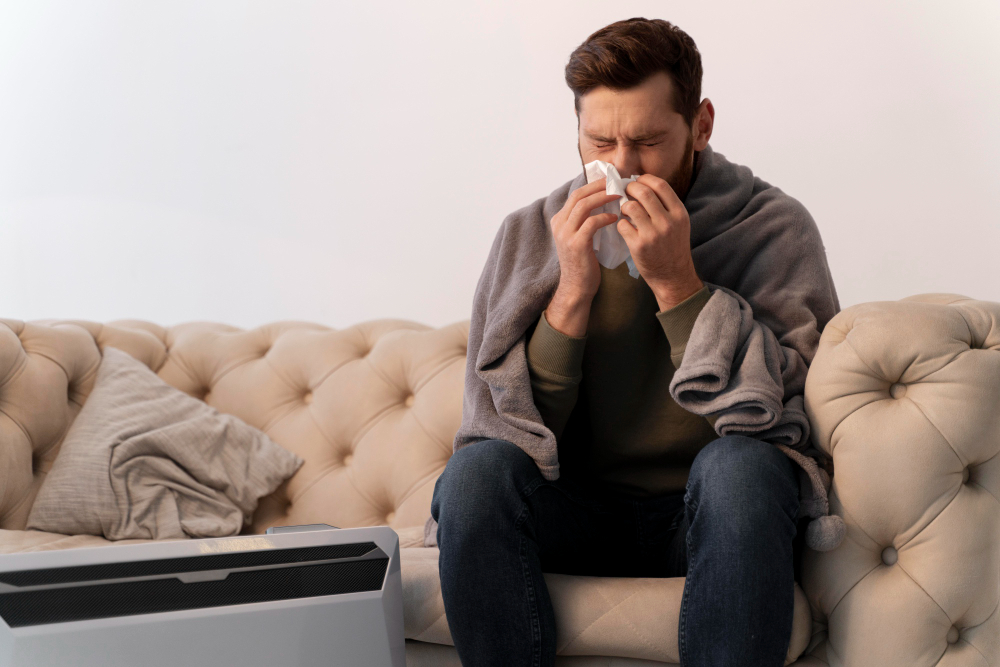How HVAC Systems Can Help Ease Your Allergies

If you live in Central Florida and struggle with allergies, you know how challenging it can be to find relief. Constant sneezing, itchy eyes, and congestion are common for many residents, thanks to high pollen levels and Florida’s humid climate. However, did you know your HVAC system could be your secret weapon to combat allergens? That’s right! Your heating, ventilation, and air conditioning (HVAC) system plays a crucial role in improving indoor air quality and easing allergy symptoms.
This guide will walk you through how an efficient HVAC system can help with allergies, the essential features to look for, and when to contact a reliable HVAC supplier in Central Florida.
How Do Allergens Impact Your Indoor Air?
Before we explore how HVAC systems can help, it’s essential to understand just how allergens affect indoor air quality. Common indoor allergens include:
- Pollen: Found in abundance during Florida's long growing season.
- Dust and Dust Mites: These microscopic particles thrive in uncontrolled humidity.
- Pet Dander: Tiny flecks of skin from cats, dogs, and other pets.
- Mold Spores: Often caused by Florida’s notorious humidity levels.
- Volatile Organic Compounds (VOCs) from cleaning products and building materials.
Poor air quality leads to prolonged exposure to these allergens, which can trigger sneezing, asthma, and other respiratory issues. This is where your HVAC system steps in to improve air quality at home.
4 Ways Your HVAC System Fights Allergens and Improves Air Quality
A properly maintained HVAC system does more than just cool or heat your home. Here are four critical ways an HVAC system can help reduce allergens indoors:
1. Air Filtration
Modern HVAC systems are equipped with air filters that trap harmful particles like dust, pollen, and pet dander before they circulate through your home. However, not all filters are created equal. Filters are rated using the Minimum Efficiency Reporting Value (MERV) scale, which ranges from 1 to 20. Higher-rated filters can capture smaller particles.
- For mild allergies, consider MERV 8 filters, which handle dust and pollen effectively.
- For severe allergies, go for MERV 11 or 13 filters to trap smaller particles, including mold spores and even smoke.
Pro Tip: To keep your filters effective, replace or clean them every 1-3 months, especially during pollen season in Central Florida.
2. Humidity Control
Florida’s humidity is no joke, and high indoor humidity can create the perfect breeding ground for dust mites and mold. Excess moisture encourages allergens to thrive, making allergy symptoms worse.
Many modern HVAC systems include dehumidifiers to keep indoor humidity levels between the ideal range of 30-50%. If your system doesn’t include one, consider upgrading to a unit designed for humidity control or installing a standalone dehumidifier.
3. UV Light Technology
Have you heard of UV light purification in HVAC systems? Ultraviolet (UV) lights can be installed within your HVAC system to kill airborne allergens like bacteria, mold spores, and viruses.
How does it work? The UV light breaks down the microorganisms’ DNA, rendering them harmless. This additional layer of purification makes UV-equipped systems especially useful for allergy-prone households. Ask your HVAC supplier about integrating UV technology into your existing setup.
4. Proper Ventilation
Ventilation is key to reducing indoor air pollutants. A well-functioning HVAC system ensures a consistent exchange of indoor and outdoor air, preventing allergen buildup inside your home. Look for systems with Energy Recovery Ventilators (ERVs) or Heat Recovery Ventilators (HRVs), which not only improve air circulation but also help maintain energy efficiency.
Remember, poor ventilation traps allergens indoors, so it’s essential to keep your HVAC system in peak condition to maintain proper airflow.
Is Your HVAC System Allergy-Friendly? Here's How to Tell
Not all HVAC systems are optimized for allergy relief. Here’s what to evaluate:
- Filter Quality: Are you using a filter with a MERV rating suited for your allergy needs?
- System Cleanliness: Have your ducts been cleaned recently? Dirty ducts can exacerbate allergy symptoms.
- Humidity Levels: Is there visible condensation or mold in your home? This is a sign that you need better humidity control.
- System Maintenance: Regular tune-ups are vital. Neglected systems are less effective at filtering allergens and controlling humidity.
If your current HVAC system isn’t cutting it, it might be time to invest in an upgrade tailored to allergy prevention.
How to Choose the Right HVAC Supplier in Central Florida
To truly benefit from the features we’ve discussed, you need to work with a reliable HVAC supplier in Central Florida who understands the specific climate challenges and your unique allergy concerns. Here’s what to look for:
- Expert Guidance: An HVAC supplier who offers tailored recommendations for improving air quality in Florida’s humid climate.
- Top-Quality Products: Look for advanced systems with high-efficiency filters, dehumidification options, and UV light compatibility.
- Maintenance Plans: Consistency is key for clean indoor air. Choose providers that offer comprehensive maintenance packages to keep your system running smoothly.
Discount Air Supply checks all these boxes. With years of experience serving Central Florida, we specialize in creating allergy-friendly HVAC solutions that fit your budget and needs.
Final Thoughts and Next Steps
Living with allergies in Central Florida can be challenging, but your HVAC system doesn’t have to be part of the problem. With advanced air filtration, precise humidity control, and modern technology like UV lights, your HVAC system can become your first line of defense against allergens.
If you’re tired of dealing with sneezing fits and stuffy noses, it’s time to take control of your indoor air quality. Contact Discount Air Supply today for personalized advice, top-quality HVAC systems, and expert installations designed to combat allergens in Central Florida.
Your allergy relief starts here.